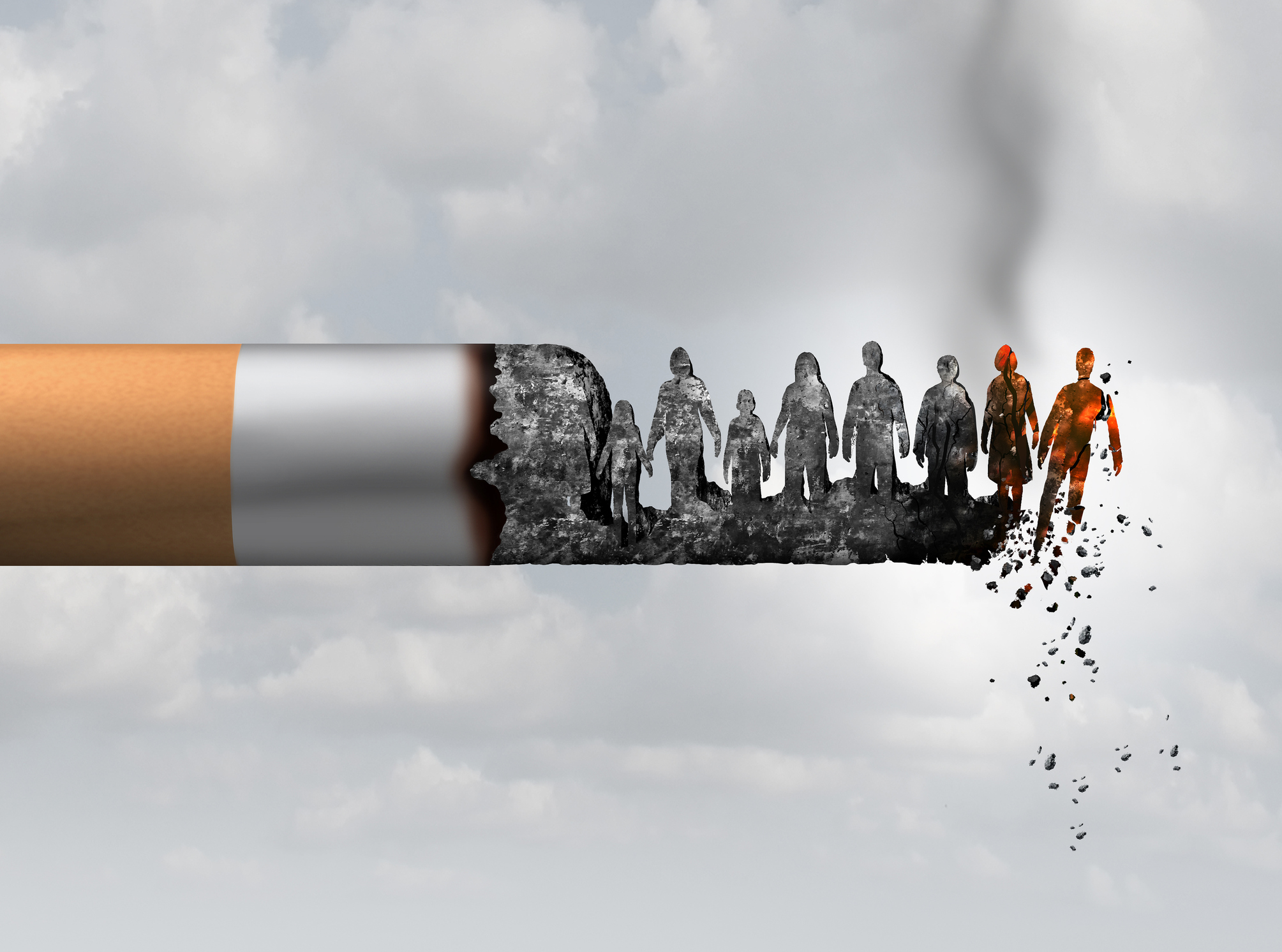Tobacco isn’t something new. Indigenous to the Americas, the plant has an extensive history with the Mayan Empire where it was used for spiritual and medicinal purposes as early as 5000 BCE. The introduction of this plant to the rest of the world from the Americas dates back to the times of Christopher Columbus.
Fast forward to the present day and the global tobacco epidemic kills an estimated six million people every year and the World Health Organization says the number is set to soar to eight million by the year 2030. This is an alarming 33 percent increase which should not go ignored by govern- ments. Some 70 percent of these deaths occur in developing low- and middle-income countries.
The task on the hand of the governments of these countries – including Pakistan – is to jump into action to stem this preventable cause of disease and death. The urgency of this task cannot be overemphasized – especially in Pakistan where we have a vast history of the officialdom waiting for a crisis to break out and then fixing it rather than taking preven- tive action in the first place.
We do not have the best healthcare delivery system to count- er this if it escalates. On the bright side, we can tackle a signif- icant percentage of this preventable cause of disease and death if we start now.
The tobacco industry just isn’t limited to companies that facilitate the growth and sale of this plant. It also includes organizations that cater to tobacco shipment, commercialisa- tion, lobbying, promotion, and distribution. This includes non-governmental organizations as well and stakeholders that conduct research wholly sponsored by these tobacco companies for their own purpose.
Although cigarettes look very simple and basic, they are the products of toxic and deadly engineering. Cigarette smoke contains over 7000 chemicals – Arsenic, one of the compounds present in cigarette smoke, is also present in rat poison and Nicotine is widely used in the making of insecticides.
Lung cancer and mouth cancer are most commonly found in Pakistani males. The eyes, nose, and throat are indefinitely affected by cigarette smoke, but even more than that it makes its way into the lungs, then the bloodstream and thereby the entire body of the smoker.
What is worse, tobacco smoke is equally hazardous for passive or second-hand smokers. They are prone to cancer and other life-threatening diseases as well.
According to a World Health Organization report from 2013 on the estimate of smoking prevalence in Pakistan, 31.8 percent of men, 5.8 percent of women, and 19.1 percent of Pakistan’s adult population currently uses tobacco in one form or another. Among youth, 13.3 percent of boys, 6.6 percent of girls and 10.7 percent of all youth currently use tobacco or a tobacco product.
The engagement of youth in such activities is indeed unfortunate. Tobacco use among the youth is undeniably a paediatric disease and a paediatric epidemic.
Pakistan has been a party to the World Health Organization Framework Convention on Tobacco Control (WHO FCTC) since 2005 but is still lagging in effective tobacco control and legislation.
Recent surveys show that cigarette prices in Pakistan are one of the cheapest in the world. Comparing it with a standardized dollar currency, the average cigarette pack is for $2.83 in Sri Lanka, $1.65 in India, $0.84 in Nepal, $0.51 in Afghanistan and $0.33 in Pakistan.
High and cheap accessibility of the product only promotes it and creates a slippery slope for the users.
Many people are with the belief that cigarette smoking, ingesting, or even vaping tobacco is just a ‘bad habit’. They fail to realize the adverse consequences it poses to health and life.
In a country like Pakistan, in which everything ties to culture and even religion at some point or the other and in some way or the other, concerted efforts must be made towards educating the gener- al public about the harmful health effects of tobacco consumption.
Like many topics that shouldn’t be but are excluded from public school curriculum, the Ministry of Education must ensure students are taught about tobacco hazards at a young age. We have the alarming data to prove why this is an absolute necessity. It must be included in speeches in religious gatherings and the provincial governments must act in concert with the federal authorities if any progress is to be made.
Successful nationwide anti-tobacco campaigns have been carried out internationally and are highly encouraged by the WHO. In the United States of America, patients who suffer from tobacco-related diseases can claim health care cost recovery from tobacco companies. With no such policies in place for cancer prevention and tobacco control and the use of tobacco growing by the day with little to no education about the subject for the general public, the government must spring to action and work towards innovative solutions










